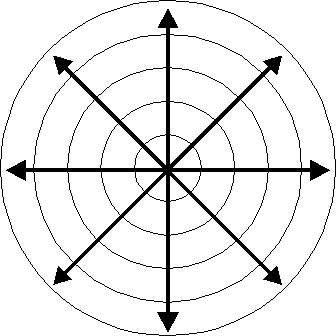|
|
Neo-Confucianism
Developed
between the 11th - 16th cent CE, provides a philosophical/metaphysical basis for
Confucian social ethics:
-
response
to Buddhist and Taoist metaphysics
-
many
elements reminiscent of Platonic and Aristotelian thinking
-
added
elements of mystical metaphysics and reason to support basic
social/humanistic ethics but also theoretically extends those ethics beyond
humanity. Sees a more basic, underlying metaphysics behind Confucius’s
original social ethics:
-
concern
for the "Great Ultimate" (T’ai Ch’i) as the
metaphysical One, the Ultimate Reality, behind the many manifestations:
all things proceed from the Great Ultimate: first comes Yin and Yang; from
Yin and Yang come the five elements (water, wood, fire, metal, earth);
from these come everything else:
T'ai
Ch'i
/ \
Yin Yang
\ /
Five Elements
|
V
everything that is
-
Chi
is seen as a material force, the raw material of which all things are
composed. All people, all aspects of the universe, are thus seen as
related (as one family) with heaven and earth as the original
"parents". Thus "Filial Piety" extends to a cosmic
level and morality extends to cosmic proportions.
-
Relates
the harmony of the individual with the harmony of the cosmos - all is
interrelated: proper respect for hierarchical status in human
relationships begins "at home", in the individual. Begin by
cultivating the individual but Jen hardly starts there. The cultivated
individual will relate well with others, according to status:
-
if every individual is in harmony...
-
then the family is in harmony, if every family is
in harmony...
-
then the community is in harmony, if every
community is in harmony...

Each concentric circle represents
the next level in the hierarchy of existence. The self is at the
center, expanding outward in its relationship with others.
-
then the nation is in harmony, if every nation is
in harmony...
-
then the world is in harmony, if the world is in
harmony...
-
then the cosmos is in harmony
Harmony begins
with the self but does not end there.
|
return to top
|